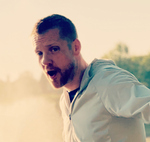I had lunch this week with a software engineer named Brady Steed and we got to talking about training up junior engineers and how to mentor them well.
He let me in on a phrase that he hears quite a bit from a fellow engineer on his squad named Daniel Dickerson.
Daniel often pulls out this gem when talking about how to learn. He says:
We can only learn what we already almost know
I got to thinking about that and you know what, I think he's right!
I thought back to my early days learning how to build mobile applications. This was before there were beginner tutorials all over the web to get you going.
This was the first version of the iOS SDK in 2008.
I had the documentation available, but I didn't have the context to understand a lot of the concepts being described in the documentation.
The words they used had little meaning to me and so although I had access to reference materials, I couldn't make much sense of them... and I struggled!
Over time, fundamental engineering principles became familiar and I learned to "speak the language" of software engineering.
I had to start with the basics.
Only then could I read and understand Apple's documentation because I had a frame of reference I could use to interpret it.
Without some context, it's impossible to evaluate new information. It's impossible to understand - and understanding is the basis for learning.
In one of my favorite books titled The 5 elements of effective thinking(paid), authors Edward Gerber and Michael Starbird call out the importance of understanding deeply.
They recommend that when preparing for an exam, a student should make sure they can get 100% on all previous exams.
Knowledge is built on knowledge.
The more solid the bricks you're building on, the more easily you'll be able to apply new learnings on top of them.
To learn how to write a book, you have to first understand how to compose a sentence.
To learn how to fix an engine, you have to understand what an engine does and how it works.
The way I see it, there are complex concepts built on a broad set of diverse building blocks and an entirely different set of complex concepts built on a deep set of closely related building blocks.
Presumably, the most complex and difficult concepts to grasp would be those that require both a broad and deep understanding.
That's what I see when I look at the role of a CEO.
The CEO has to have a breadth of knowledge across a broad array of topics.
Business Strategy
Business Operations
Product Development
Leadership
Technology
Finance
Logistics
Legal
HR
... and the list goes on.
The CEO needs more than a surface-level understanding in each of these areas.
To be an effective leader, a CEO needs to have both breadth and depth of knowledge.
So how is that knowledge built?
It can only be built brick by brick.
Connection by connection.
Knowledge upon knowledge.
So I find myself asking,
How solid is my foundation?
Where are there holes I need to go back and fill?
How do I broaden the scope of my understanding and build on what I already know?
It's easy (maybe even expected) to get stuck in the realm where you have developed a depth of knowledge. It's much harder to seek to develop expertise in a brand new area.
You have none of the foundational building blocks.
You have to start from scratch, and that's hard.
It's humbling.
In this new space, you're no longer the expert.
You're the noob.
Everything you do, you have to think hard about and most of the work you do isn't all that good.
You have a limited toolset to work with and the experience you're building on starts at (or close to) zero.
But imagine this...
Once you build up a foundation in each of the areas that are needed for you to thrive in whatever role you want to be able to fill, you'll have a broad and deep foundation on which to stand up your masterpiece.
Granted, this can be easier said than done.
If you're anything like me, there are some areas that you find super interesting and others that you'd rather avoid.
Learning to be proficient in an area that's of little interest can be a challenge.
But as Kevin Kelly noted in his post titled "103 bits of advice I wish I had known":
For a great payoff be especially curious about the things you are not interested in.
That's an area I need to grow in.
No question.
I am a JIT learner. I want to learn so I can do!
I want to apply what I learn as soon as possible and if I get results, use it again as often as possible!
That has served me well over the years, but the shortcoming of that method of learning is that it often leaves holes in the foundation.
Often, the holes are in areas I don't have a particular interest in.
I need to cultivate curiosity in those areas.
I need to make sure I combine my willingness to uncover the how for the projects immediately in front of me with a regular regiment of deliberate training to fill in the gaps and broaden my understanding.
And that's exactly what I plan to do.


